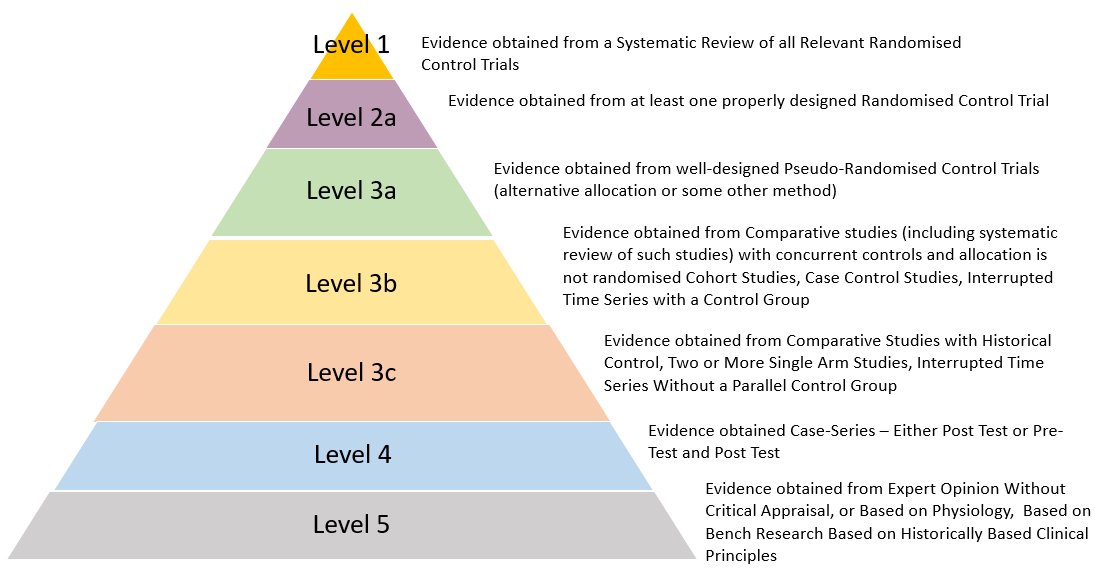
| GRADING SCALE FOR RESEARCH STUDIES* | |
| Strength of the Evidence | |
| Level I | Meta-analysis, systematic review, randomized controlled trials (RCTs) |
| Level II | Experimental or quasi-experimental studies, cohort studies |
| Level III | Non-experimental, qualitative studies or case-control studies |
| Level IV | Case series, case reports |
| Level V | Expert opinion, animal and in vitro studies |
| Quality of the Evidence | |
| High (A) | |
| Scientific | Consistent results with sufficient sample size, adequate control, and definitive conclusions, consistent recommendations based on extensive literature review that includes thoughtful reference to scientific evidence. |
| Summative reviews | Well-defined, reproducible search strategies; consistent results with sufficient numbers of well-defined studies; criteria-based evaluation of overall scientific strength and quality of included studies; definitive conclusions. |
| Experiential | Expertise is clearly evident. |
| Good (B) | |
| Scientific | Reasonably consistent results, sufficient sample size, some control, with fairly definitive conclusions; reasonably consistent recommendations based on fairly comprehensive literature review that includes some reference to scientific evidence. |
| Summative reviews | Reasonably thorough and appropriate search; reasonably consistent results with sufficient numbers of well-defined studies; evaluation of strengths and limitations of included studies; fairly definitive conclusions. |
| Experiential | Expertise seems to be credible. |
| Low quality (C) | |
| Scientific | Little evidence with inconsistent results, insufficient sample size, conclusions cannot be drawn. |
| Summative reviews | Undefined, poorly defined or limited search strategies; insufficient evidence with inconsistent results; conclusions cannot be drawn. |
| Experiential | Expertise is not discernable or is dubious. |
* Adapted from Newhouse (2006, JONA, 36:7/8) and ACSO (www.jco.org/cgi/content/full/17/9/2971/TBL22971)
